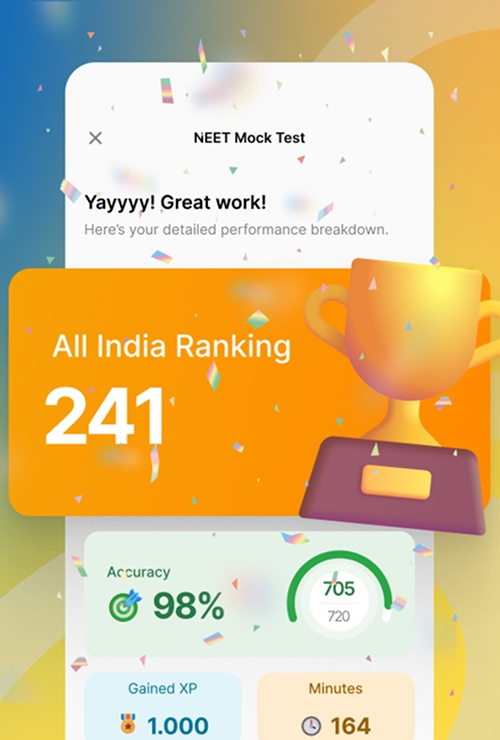
☝️ At a glance
- Becoming an ophthalmologist requires a bachelor's degree, followed by an MBBS, residency, and potential fellowships in specialized areas.
- Ophthalmologists are responsible for diagnosing, treating, and performing surgeries related to various eye conditions, such as cataracts, glaucoma, and macular degeneration.
- The profession offers diverse career opportunities in hospitals, private practice, research, and teaching, with a competitive salary that increases with experience and specialization.
- Ophthalmologists need a combination of technical skills, surgical precision, empathy, and communication abilities to provide high-quality patient care.
Becoming an eye doctor, also known as an ophthalmologist, is a rewarding career that involves diagnosing and treating a variety of eye disorders and diseases. Eye doctors play a crucial role in maintaining vision health, performing eye exams, prescribing corrective lenses, and conducting surgical procedures to address vision problems. This guide provides a comprehensive overview of the steps, skills, and education required to embark on this fulfilling journey.

Become a global doctor with MBBS abroad!
Studying abroad can be affordable and stress-free with futureMBBS:
- World-recognized universities with English-taught programs
- On-site support in partner university cities
- Guaranteed placements & internships for hands-on experience
From selecting universities and supporting you with the application process to orientation and finding accommodation – we are at your side.
Types of eye doctors
Before diving into the process, it is important to understand the different types of eye doctors:
Ophthalmologists: Medical doctors specializing in eye care, surgeries, and treating complex eye diseases.
Perform surgeries like cataract removal and retinal repairs.
Provide treatment for chronic eye conditions such as glaucoma and macular degeneration.
Optometrists: Professionals focusing on prescribing corrective lenses, conducting comprehensive eye exams, and detecting common eye conditions.
They are not medical doctors but are licensed to manage non-surgical treatments.
Opticians: Specialists who design and fit contact lenses and eyeglasses based on prescriptions provided by ophthalmologists or optometrists.
Focus on the technical aspect of vision correction.
Roles and responsibilities of an ophthalmologist
Ophthalmologists have diverse and critical roles, including:
Conducting comprehensive eye exams: They perform thorough evaluations of patients’ vision and overall eye health.
Diagnosing and treating eye conditions: Identifying diseases like cataracts, glaucoma, macular degeneration, and diabetic retinopathy.
Prescribing corrective lenses and medications: Offering solutions for vision correction and treating infections or chronic conditions.
Performing surgical procedures (eye surgery): Specializing in surgeries like cataract removal, LASIK, retinal detachment repairs, and corneal transplants.
Managing chronic eye diseases: Providing long-term care and monitoring for progressive conditions like glaucoma.
Offering specialized care: Working in subfields such as pediatric ophthalmology or focusing on external and corneal disorders.
Educating patients: Providing guidance on maintaining eye health, managing existing conditions, and preventing vision loss.
Research and development: Contributing to advancements in ophthalmic techniques and treatments.
How to become an ophthalmologist in India
Step 1: Obtain a bachelor's degree
Start with a bachelor's degree in medical sciences or a related field. Focus on subjects like biology, chemistry, and physics to build a strong foundation. Prepare for entrance exams like the National Eligibility cum Entrance Test (NEET).
Step 2: Enroll in medical school
Pursue an MBBS degree from a recognized medical school, which typically takes 5-6 years. This includes:
Studying human anatomy, pathology, and pharmacology.
Gaining hands-on training through clinical rotations.
Step 3: Complete an ophthalmology residency training
After obtaining your MBBS degree, join an ophthalmology residency program. This 3-year program focuses on:
Developing surgical skills for eye surgeries.
Gaining clinical training in diagnosing and treating eye disorders.
Step 4: Obtain a ophthalmology license (Medical license)
Pass the licensing exams conducted by the state medical council or National Board to practice as an ophthalmologist.
Step 5: Pursue fellowships or advanced training
Consider continuing medical education and further specialization in areas like retinal surgery, corneal disorders, or pediatric ophthalmology through fellowship programs and gain hands on experience. Fellowships provide advanced training and expertise in a specific field of ophthalmology.
Step 6: Start practicing
Begin your career in hospitals, private practice, or academic institutions, offering services like performing eye surgeries, prescribing lenses, and managing complex eye conditions.

Study medicine abroad with 100% support!
futureMBBS offers full support to make your dream of studying medicine abroad a reality.
- Hassle-free admission guidance
- Fast-tracked visa processing
- Post-arrival support, including accommodation assistance
Optometrists vs. ophthalmologists: What’s the difference?
Although both optometrists and ophthalmologists are eye care professionals, their qualifications and the treatments they provide differ significantly.
Optometrists
Optometrists are healthcare providers who specialize in outpatient care. They diagnose vision issues, manage rehabilitation after eye injuries, and provide ongoing eye care. To practice, optometrists only need to complete optometry school and often work in private practices.
Ophthalmologists
Ophthalmologists, on the other hand, are medical doctors who attend medical school and complete a residency. They perform eye surgeries and treat both chronic and acute conditions, typically in hospital settings.
Both professions involve direct patient interaction and offer opportunities for career growth, but the educational paths to these roles are quite different.
Optometry courses after 12th
For students interested in eye care but not becoming medical doctors, optometry profession is a great option. The optometry courses include:
Bachelor of optometry (B.Optom): A four-year undergraduate program that covers diagnosing and managing eye conditions, fitting contact lenses, and conducting eye exams.
Diploma in optometry (D.Opt): 2-3 year diploma courses that provide foundational knowledge in vision care, lens fitting, and basic diagnostics.
Integrated bachelor’s plus postgraduate degree: Combined programs lasting 5-6 years, offering in-depth knowledge, postgraduate optometrist degree, and advanced training in optometry.
Certificate programs: Short-term courses focusing on specialized areas like orthoptics, low vision rehabilitation, or ocular diagnostics.
These programs equip students with the necessary skills and theoretical knowledge needed for a career in vision care and primary eye care services.
Skills required to be an ophthalmologist
Becoming an ophthalmologist demands is a fulfilling career, however, it demands a blend of technical expertise, interpersonal skills, and a commitment to continuous improvement. Here are some essential skills:

Medical knowledge: A comprehensive understanding of medical sciences, anatomy, and the complexities of the human eye.
Surgical precision: The ability to perform delicate surgical techniques and procedures with accuracy and confidence.
Analytical thinking: Diagnosing complex eye conditions and determining the best treatment options requires strong analytical and problem-solving skills.
Attention to detail: Ensuring no aspect of a patient’s condition is overlooked during diagnosis or surgery.
Communication skills: Explaining diagnoses, treatments, and procedures to patients in an easy-to-understand manner while addressing their concerns.
Empathy and patience: Providing compassionate care to patients dealing with vision loss or chronic eye diseases.
Adaptability: Staying updated on the latest advancements in ophthalmic techniques and adopting new technologies.
Time management: Balancing patient consultations, surgeries, and administrative responsibilities efficiently.
Team collaboration: Working closely with nurses, optometrists, and other healthcare providers to deliver comprehensive care.
Leadership and mentorship: Guiding junior doctors and medical students in clinical and surgical training.
These skills not only enhance the quality of care provided but also contribute to building trust and long-term relationships with patients.
Jobs
Ophthalmologists can work in both public and private sectors, including government hospitals, private hospitals, and research centers. The hospital where you completed your internship may also offer full-time job opportunities.
Ophthalmologist average salary- A rewarding career
Ophthalmologists earn a competitive salary depending on their experience, specialization, and work setting. Here’s an overview:
Entry-Level: Fresh graduates entering the profession can expect to earn INR 6-10 lakhs per year. Those employed in government hospitals or starting their residency may earn on the lower end initially.
Mid-Level: With 5-10 years of experience, salaries increase to INR 10-20 lakhs annually. Ophthalmologists in private hospitals or those specializing in fields like retinal surgery often earn higher.
Experienced ophthalmologists.: Senior ophthalmologists with over a decade of experience, particularly those in private practice or advanced specializations, can earn INR 20 lakhs or more per year. Experienced professionals who run their own private clinics can often command significantly higher incomes based on their reputation and patient base.
Private Practice: Ophthalmologists who establish their own clinics often enjoy the potential to earn significantly higher, with earnings depending on patient volume, clinic location, and services offered.
International Opportunities: Those pursuing careers abroad, especially in countries like the Europe, USA, UK, or Australia, can earn substantially more, with annual incomes ranging from $100,000 to $300,000 or higher.
Beyond financial rewards, ophthalmology offers the personal satisfaction of enhancing patients’ lives by improving their vision and overall quality of life.
Conclusion
Becoming an ophthalmologist is a fulfilling and impactful career that allows you to make a significant difference in people's lives by helping them maintain and restore their vision. The path to becoming an eye doctor involves extensive education, training, and a deep commitment to patient care. Whether you choose to specialize in a particular area of ophthalmology or focus on general eye care, the journey offers both professional growth and personal satisfaction. Additionally, eye care professionals are in high demand, and the field provides diverse career opportunities, ranging from private practice to academic positions, as well as international prospects. By combining medical expertise with compassion and skill, ophthalmologists play a vital role in advancing healthcare and improving the quality of life for countless individuals.
Your medical career abroad starts here!
Thinking of pursuing MBBS abroad? Don’t just dream it, do it!
Start your MBBS journey!
Frequently asked questions (FAQs)
Can I become an ophthalmologist without an MBBS?
To become an ophthalmologist, you generally need to complete a medical degree like MBBS (Bachelor of Medicine, Bachelor of Surgery) or an equivalent program. After obtaining the MBBS, you must undergo further studies focused on ophthalmology, which specializes in eye care. These studies will teach you how to diagnose and treat eye conditions, perform eye surgeries, and manage overall eye health.
How do I become an ophthalmologist after completing 12th grade?
After finishing 12th grade, the next step is to enroll in a recognized medical college to pursue an MBBS degree. Once you have completed your MBBS, you can sit for entrance exams to specialize in ophthalmology. You may choose to pursue an MS or MD in Ophthalmology. Afterward, you will need to complete a residency program and obtain the necessary qualifications and licenses to practice.
How long does it take to become an ophthalmologist?
Becoming an ophthalmologist typically requires 11 to 12 years of study and training. This includes completing an MBBS degree, followed by postgraduate studies (MS or MD in Ophthalmology), and undertaking a residency program for hands-on experience. The exact duration may vary depending on individual circumstances and specific educational pathways.
What is the highest degree in ophthalmology?
The highest degree in ophthalmology is a PhD or MD. This advanced qualification is for those interested in research, high-level teaching, or becoming experts in the field of eye care. Obtaining this degree requires extensive study, research contributions, and an in-depth understanding of the latest developments in ophthalmology, demonstrating both expertise and excellence in the field.
Is there scope for further specialization after becoming an ophthalmologist?
Yes, after becoming an ophthalmologist, you can pursue further specialization through fellowships in specific areas, such as cornea, glaucoma, or oculoplastic surgery. Specialization provides opportunities for advanced training and expertise in particular subfields of ophthalmology, allowing you to focus on specific aspects of eye care.







